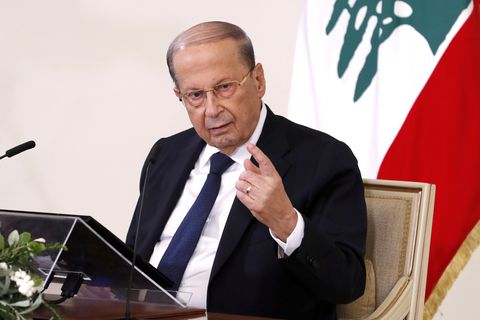For two and a half months, Michel Aoun has not been in the presidential palace in Baabda, and Lebanon is yet again without a leader which has raised questions for those in Lebanon if Lebanon can truly be saved. This has been seen with the eighth attempt to elect a president failing.
Since General Aoun’s exit, the ten sittings of the parliament which contains 128 seats have been fruitless in their effort to pick a new leader since there is no majority political party.
The path to casting a ballot has been anything but uncomplicated.
At every round of the election process, Michel Moawad has been the only candidate to garner a considerable amount of backing. However, he has yet to acquire the two-thirds majority of votes in the first round or the 65 votes needed for a simple majority in the second round.
No quorum was met, so the second round of each session had to be terminated as MPs left the chambers.
Given the current circumstances, a lack of a president in Lebanon, a situation which is fairly usual in the nation’s divided political landscape based on religion, has taken on a more serious tone.
The nation is currently facing a catastrophic economic emergency, with numerous citizens being thrown into poverty. Prime Minister Najib Mikati’s government is temporarily in charge, but with its power greatly reduced.
Despite the backing of a sizeable and anti-Hezbollah faction, like the Lebanese Forces, the largest parliamentary party, Mr Moawad is deemed too controversial to reach the necessary vote margin. This is evidenced by the fact that he continually trails behind blank or invalid ballots.
The powerful political faction that had been dominant in parliament up until the last elections — comprised of Hezbollah, its Shiite partner Amal, and the Christian Free Patriotic Movement led by Mr Aoun — have all presented their own preferred candidates.
Thus far, Mr Moawad has enjoyed support from the Kataeb Party, the Druze Progressive Socialist Party, and a few independent MPs, some of whom were connected to the 2019 demonstrations against the country’s ruling classes which caused the government to fall.
Lebanon’s failure to elect a new president
Lebanon is currently struggling to elect a president due to deep political divisions and ongoing economic and political crises which is raising questions amongst experts as to whether or not Lebanon can be saved. The country has been without a president since October 2019, due to a lack of agreement among political parties on a candidate. Additionally, the country is dealing with a struggling economy, high unemployment, and a large national debt, which has led to widespread protests and social unrest.
These factors have made it difficult for political leaders to reach a consensus on a presidential candidate, and the country remains in a state of political deadlock. If this situation continues, the level of confusion and instability in the country will also worsen.
Further protests and social unrest are likely to emerge as citizens take to the streets to express their displeasure and the inability of their leaders to address the country’s problems.
Image Credit: Dalati Nohra/Handout via REUTERS



















